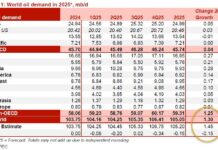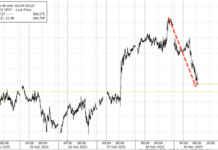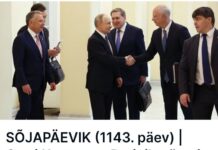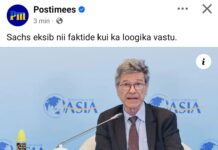BRICS has searched for meaning throughout its existence after being coined by a Western economist at the turn of the century, and it finally appears to have its purpose after last summer’s summit doubled its number of members. Russian Presidential Aide Yury Ushakov elaborated on its future role in a detailed interview with TASS whose English translation can be read here. As can be seen, Moscow envisages this association transforming into a multipolar discussion club and economic integration platform.
He immediately emphasized the group’s importance in the formulation of his country’s long-term foreign policy and confirmed that its chairmanship this year will focus on the three cooperation tracks of politics and security, the economy and finance, and cultural and humanitarian ties. Around 250 events will be held in a dozen Russian cities over the next seven months, culminating in the Kazan Summit from 22-24 October, the city of which was chosen due to its experience hosting various international forums.
Ushakov didn’t mention it in his interview, but Kazan is also referred to as “Russia’s third capital”, and it’s the center of its half-millennium-long Islamic heritage. It’s therefore a symbolic place for this newly expanded association to meet since that city reinforces their cosmopolitan composition and mutual intent to foster a convergence of civilizations in order to counteract the clash that some have predicted. To that end, BRICS plans to pioneer a new form of partner relations to promote ties with other countries.
In between cultivating the aforesaid and expanding again at a future date, Ushakov said that “we will focus on the organic integration of ‘new-comers’ into the architecture of partnership mechanisms, and on familiarizing them with ‘BRICS culture’ that has been established over 15 years.” This is a reasonable approach since continuing to add new members every year without fully incorporating those who just joined during the previous one could lead to the association becoming dysfunctional.
As for the next round of expansion, Ushakov said that “the political and economic weight of this or that candidate country and its place not only in its region, but also in the international arena as a whole will be borne in mind. Support for the principles of multipolarity and a greater role of developing countries in global governance, as well as the fundamental values of the BRICS group, such as the spirit of equality, mutual respect, openness, inclusiveness and constructive cooperation, is an indispensable condition.”
Accordingly, aspiring members will also learn about “BRICS culture” and be able to display their aforementioned credentials via the forthcoming partnership mechanism that’ll formalize such ties between them and this association, thus optimizing its workings and facilitating future expansions. The end goal that’s being pursued by BRICS’ continued growth is the creation of a multipolar discussion club and economic integration platform, the purpose of which will now be analyzed.
The first task involves counteracting centrifugal forces, both naturally occurring and artificially exacerbated by the West, that risk provoking a “Clash of Civilizations” that could divide-and-rule the Eastern Hemisphere to America’s hegemonic benefit. This is being advanced by doubling BRICS’ formal membership and creating the aforementioned partnership mechanism in order to promote dialogue between all those that share the same goal of building a truly Multipolar World Order.
The idea is that BRICS could become a more concentrated version of the UN that brings together countries with the same worldview, but it importantly won’t replace the UN since Russian Foreign Minister Sergey Lavrov recently reaffirmed that “The UN Charter is the ideal document for this day.” Basically, BRICS will focus on building the future while the UN will manage disputes between rival countries in the present, with both theoretically promoting environmental and other apolitical goals too.
As for the second task of this association transforming into an economic integration platform, it’s important to note that Ushakov clarified that “Russia has never set BRICS in opposition to other international platforms, be it the Group of 20 or the Group of Seven.” It’s those two’s and others’ Western members that “try to hamstring and weaken” this association, but a theoretical change of behavior from them that’s proven not to be a ruse could in principle lead to them participating in BRICS.
All that BRICS seeks to do in this respect is organize the activities of likeminded countries that want to accelerate economic (and thus by extension financial) multipolarity processes in order to create a more equitable world system that brings more benefits to the Global Majority than the present one does. The goodwill that’s achieved between rival pairs of likeminded countries like China and India through their discussions per the association’s first task is meant to keep the second’s joint tangible work on track.
To recap, BRICS is poised to play one of the most important roles of any organization in the world, but friends and foes alike shouldn’t have any false expectations of its intentions such as becoming an anti-Western bloc or replacing existing organizations like the G20. Its primary purposes are only to facilitate dialogue between different civilizations and promoting their members’ cooperation on accelerating multipolar processes in order to stabilize the global systemic transition.
























